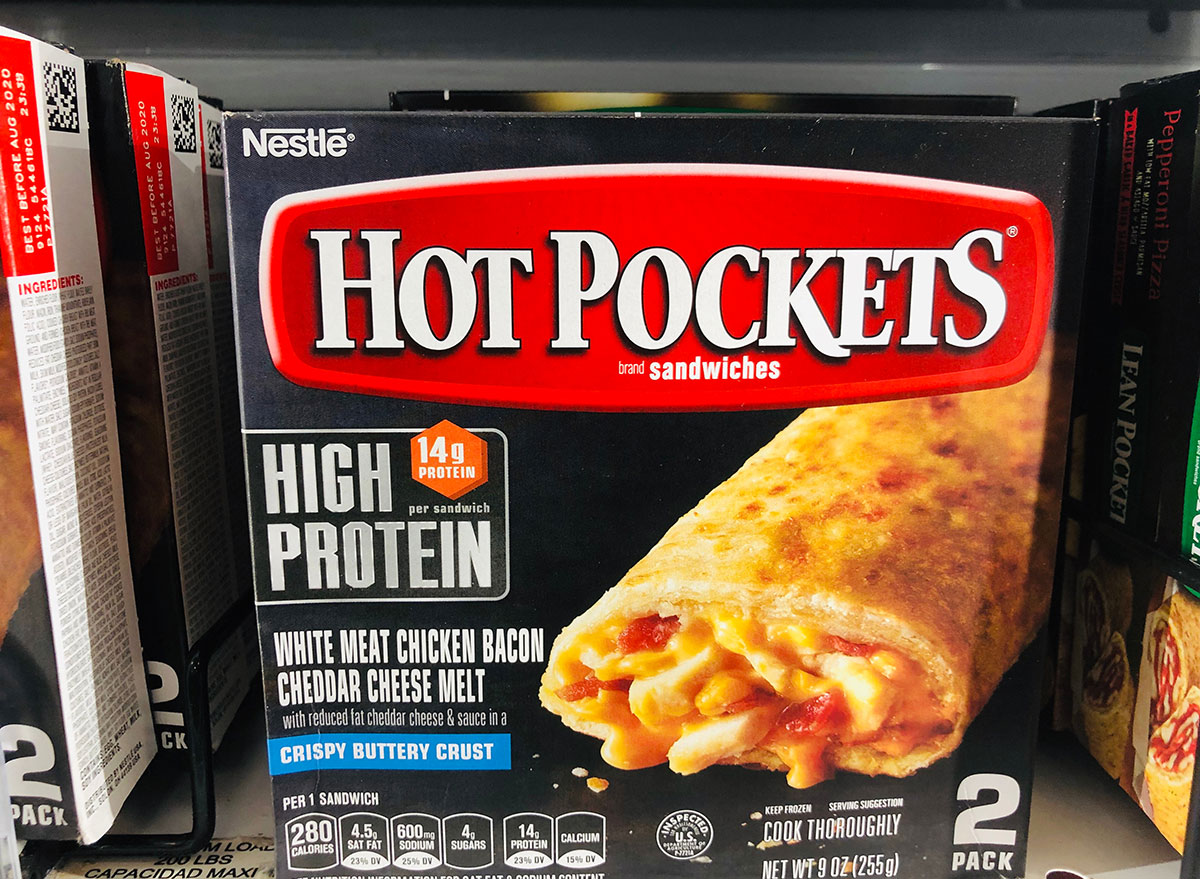These Popular Grocery Store Items Can Dramatically Increase Your Risk of Death, New Study Says

Numerous studies have emphasized the value of loading up on fruits and vegetables at the grocery store, but equally important is what to avoid, according to a recent study in the American Journal of Clinical Nutrition.
Researchers looked at over 22,000 people who provided data on health conditions and eating habits over an eight-year period, and found that those who consumed the most ultra-processed foods had an increased risk of death from any cause of 26% compared to those who didn't eat those foods. Their risk of cardiovascular disease was even higher, at 58%, compared to those who skipped ultra-processed choices.
These foods are produced by extensive industrial processing that significantly alters their natural properties, according to the study's first author, Marialaura Bonaccio, Ph.D., researcher at the Department of Epidemiology and Prevention at the Mediterranean Neurological Institute in Italy.
So, which grocery items should I avoid and why?
They tend to be high in sugar, oil, and salt, and low in essential nutrients, she says. That includes choices like microwavable meals, chips and fried snacks, and sugary treats like cookies. (For healthier meal and snack options, be sure to check out 100 Easiest Recipes You Can Make.)
Even worse is that these foods are likely to be consumed in excess, and when they make up a larger part of a diet, that pushes out healthier options like those nutrient-rich fruits and vegetables, says Bonaccio. That's especially true among those of lower socioeconomic status, she adds, since these foods can be a cheap source of calories.
A big part of the problem is the high amount of sugar, she adds, which has shown associations in past research with increased risk of early mortality and cardiovascular disease. But it's not the sweet stuff alone that represents a problem.
"Excess sugar, of course, is not healthy for us and it can increase death risk on its own," says Bonaccio. "But the industrial processing itself also plays an important role here. That's because it introduces modifications in the composition and structure of nutrients."
What does this all mean?
That means it's not just what eating that makes a difference—it's what you're not eating, as well. Ultra-processed foods can create considerable nutritional gaps that, over time, can wreak havoc on the body, with negative effects not only on your heart, but also with metabolic function, brain health, gut health, and immune system regulation. Because these foods are low in vitamins, minerals, and antioxidants, eating more of them can create inflammation in the body, and that raises risk of earlier death.
What helps you live longer instead? Those in the study who stuck closest to the Mediterranean diet—rich in fruits, vegetables, whole grains, healthy fats, and fish—had much lower health risks, particularly if they had more variety in their vegetable and grain consumption. Giving everyone better access to foods like these, Bonaccio says, would likely lead to longer lives.
To better understand why you may crave heavily processed frozen meals and packaged foods, be sure to check out New Study Explains Why You Can't Stop Eating Unhealthy Foods.








